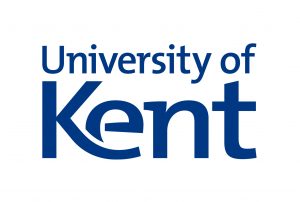How is Postgraduate study managed at Kent?
There is a network of staff members and committees at Kent dedicated to the management of postgraduate education within the University and the safeguarding of the interests of our postgraduate students. All the committees include elected postgraduate student members.
Each academic Division has a Director of Education and Student Experience who will be responsible for taught programmes of study within that school. Each Division will have an Education Committee, which is responsible for the quality management of taught programmes of study and monitoring the progress of taught students within each school, as essential platforms for feedback and support. More information about the role of the Divisional Director of Education and the Education Committee can be found in the University’s Code of Practice for Quality Assurance for Taught Programmes of Study at: www.kent.ac.uk/teaching/qa/codes/.
The University Code of Practice for Quality Assurance for Taught Programmes of Study provides a framework for the quality management of taught programmes of study at Kent. See: www.kent.ac.uk/teaching/qa/codes
Intermission, transfer of registration, change of status and withdrawal from the University
If you are considering intermitting, transferring your registration to another programme of study, changing from full-time to part-time (or vice-versa) or withdrawing from the University, you should first discuss this with your personal tutor or programme convenor who will be able to provide you with advice. Postgraduate administrators within your academic schools/Divisions will be able to direct and advise you on the administrative procedures involved with such changes. The procedures are available for consideration at: www.kent.ac.uk/fso/procedures/pg/pg-taught.html
Examination
- Information about the procedures surrounding the submission of your dissertation and examination is available in:
- Regulations for Taught Programmes of Study: www.kent.ac.uk/teaching/qa/regulations
- Instructions to Candidates for the Degree of Master by Coursework or Master by Coursework and Dissertation or for a Postgraduate Diploma: www.kent.ac.uk/teaching/qa/regulations/taught/cwkinstc.html
- Credit Framework for Taught Programmes of Study: www.kent.ac.uk/teaching/qa/credit-framework
External Examiners’ Reports
It is now a quality requirement that institutions make external examiners’ annual reports available in full to all students. In order to address this the Quality Assurance Office has made reports accessible at www.kent.ac.uk/teaching/qa/extexaminers/eers. External examiners’ reports for the most recent year will be available to all Kent-registered students, who need a Kent login to access the information.
Academic complaints and appeals
An academic complaint is any specific concern about the provision of a programme of study or related academic service. An academic appeal is a request for a review of a decision of an academic body charged with making decisions on student progression, assessment and awards. The procedures for complaints and appeals brought by postgraduate students are outlined in the document Complaints Procedures for Students, found on the Regulations website at www.kent.ac.uk/teaching/qa/guidance/index.html?tab=procedures. Students are advised to refer to this prior to lodging any formal complaint or appeal. For formal academic complaints, students should complete a Complaints Form (available on the Regulations website and in the Complaints Procedures document), which will ensure that the complaint is investigated thoroughly.
Plagiarism and duplication of material
Plagiarism is the act of presenting the ideas or discoveries of another as one’s own. To copy sentences, phrases or even striking expressions without acknowledgment in a manner which may deceive the reader as to the source is plagiarism; to paraphrase in a manner which deceives the reader is likewise plagiarism.
A student must not reproduce any work previously submitted for assessment (for example, examination answers, essays, project reports, dissertations or theses) or any material derived from work authored by another without clearly acknowledging the source.
Duplication of material means the inclusion in coursework (including extended essays, projects and dissertations) of a significant amount of material which is identical or substantially similar to material that has already been submitted for the same or any other course at this University or elsewhere, without acknowledging that such work has been submitted.
The University does not accept plagiarism or duplication of material and imposes severe penalties if it occurs in coursework, dissertations, projects, examinations and theses. If you need guidance on the correct use and presentation of quotations and source material, you should consult your tutor or supervisor.
Further university guidance on plagiarism, academic integrity and good practice is available at: www.kent.ac.uk/uelt/ai
Anti-Bribery and Corruption Policy
The University’s Anti-Bribery and Corruption Policy applies to all students in their activities as students of the University and to the full range of the University’s activities, both in the UK and overseas. The University is committed to conducting its business fairly, honestly and openly, to the highest standards of integrity and in accordance with all legal requirements. The Anti-Bribery and Corruption Policy provides a clear statement that the University will not permit any form of bribery and outlines the procedures to prevent employees or students from engaging in bribery. The full policy can be found on the University’s governance website at www.kent.ac.uk/governance/policies-and-procedures/bribery.html
